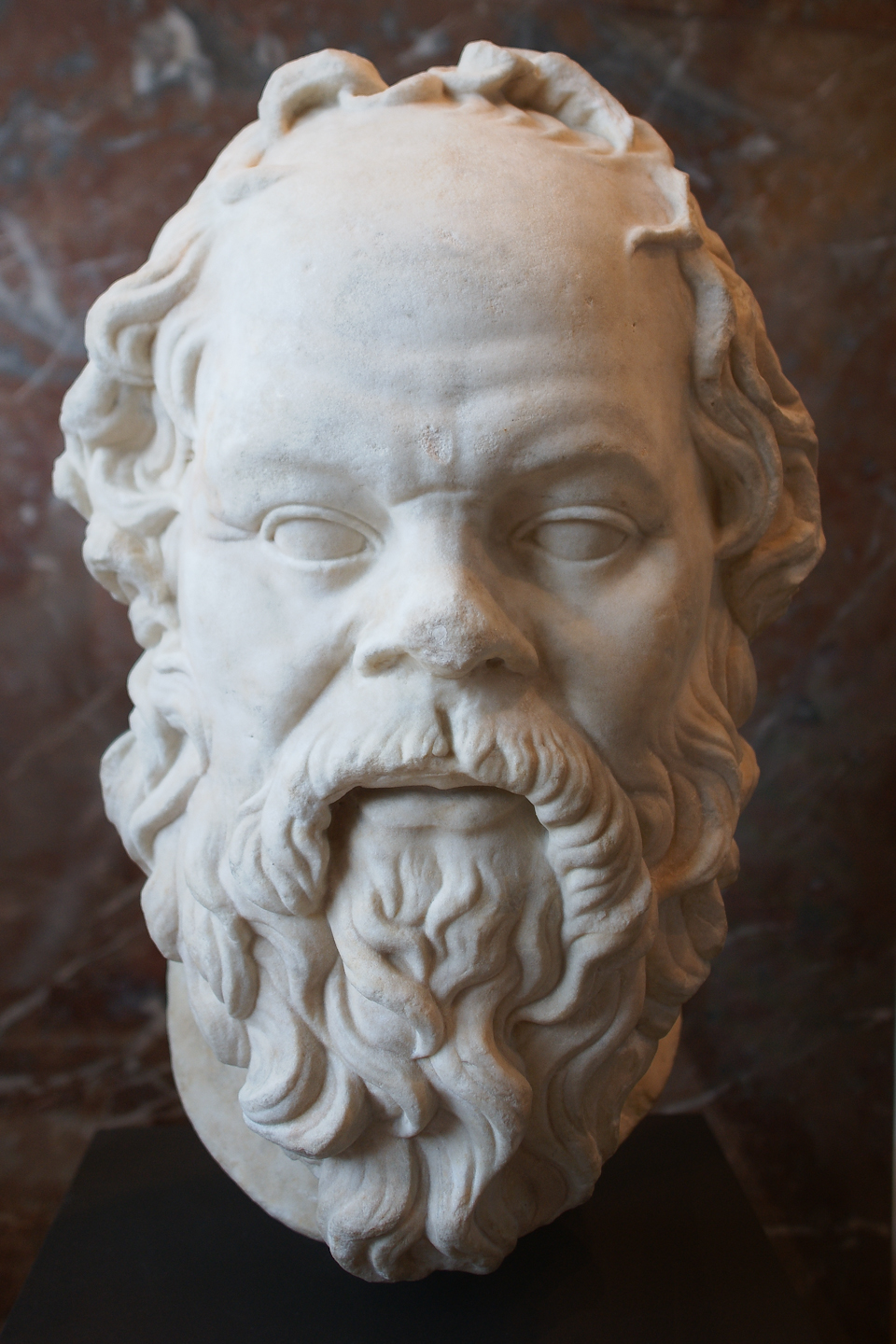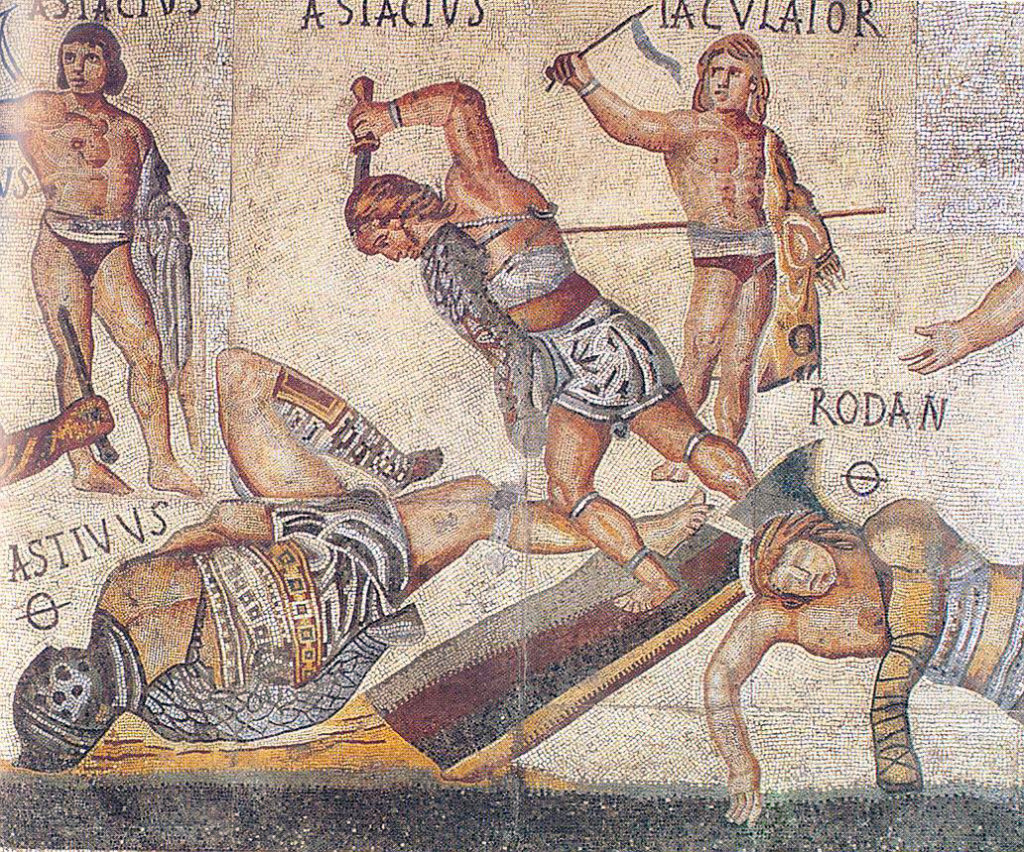In ancient Athens, amidst wealth and greatness, there lived a man who sought to understand the world and the human condition through formal logic. His name was Socrates.
Socrates was a philosopher whose influence on ancient philosophy and the Western philosophical tradition is immeasurable. His name is recognizable to almost everyone.
Despite that, Socrates wrote nothing of his own. Most of what we know comes from Plato’s dialogues. Yet, he is still among the most influential individuals in history.
The end of Socrates’s life was marked by tragedy. Though sentenced to death by the very city that he loved, in his final moments, Socrates remained true to his beliefs and philosophy.
Facing the ultimate sacrifice, he would take his fate into his own hands. After his death, Socrates left behind a remarkable, lasting legacy that has continued to inspire and challenge thinkers throughout the ages, up to this very day.
The details around his untimely end still fascinate many. How exactly did Socrates die? Is it fair to say that he committed suicide? The death of Socrates remains a poignant reminder of the power of thought and the courage to stand by one’s convictions.

The Death of Socrates – painting by Jacques Louis David
The Trial of Socrates
In the history of both philosophy and politics, few events hold as much weight and influence as the dramatic Trial of Socrates in 399 BC.
Socrates’ trial was the culmination of a long, winding series of pivotal events in Athens at the time. After their defeat and humiliation at the hands of the Spartans, Athens’ democracy went through a tumultuous period. During this time, it was ruled by the Thirty Tyrants, a group of elites installed by the Spartans.
Multiple men – Critias and Charmides, notably – were close peers and associates of Socrates. The ‘tyrants’ were quickly overthrown, and democracy was restored. However, the people of Athens were driven by vengeance-seeking bloodlust.
Socrates was a close friend of a man named Alcibiades. He was an Athenian general who infamously led the Athenian army to disaster in an invasion of the island of Sicily, before defecting to the rival Spartans.
On paper, Socrates’s trial was a result of the accusations by Meletus of his moral corruption and impiety, stemming from his failure to acknowledge the gods, as well as the charge of corrupting the youth. It was also an attempt to rid the city-state of all those associated with the former oligarchy and other enemies of the democratic government.
It’s also worth noting that even before these events, Socrates wasn’t liked by many – he had a habit of criticizing the Athenian citizens often.
His inquiry into politico-philosophical questions with his students proved to be the final straw. Despite his defense and the lack of concrete evidence, he was convicted of both charges.
Imprisonment and Death Sentence
In ancient Athens, a typical jury consisted of 501 men, drawn entirely randomly from a group of citizen volunteers. Similar to our modern jury systems today.
Unfortunately for the famous philosopher, he was found guilty by the jury of his peers. Most scholars accept that he was likely convicted by a vote of 280 to 221.
Following his conviction, Socrates was allowed to suggest sentences for his punishment. Always one to poke fun at the people of Athens, his initial suggestion was that he should receive free meals at the Prytaneum, a typical place for honoring champions and heroes.
After being rebuffed, he proposed paying a fine of 100 drachmae – a small fine, but a decent amount of money for a philosopher like him. However, the prosecutor of the trial proposed the death penalty for the impious philosopher. The majority of the jury ultimately voted for Socrates’ death rather than for his conviction.
Sentenced to death, many would have expected the philosopher to flee Athens, living out his days in exile to avoid his ultimate end. Despite this option, Socrates refused to flout the law. Always the wise man, he told friends and family that to flee would be to disgrace them and that no injustice done to him could be undone by defying the law.
They imprisoned Socrates until the time of his execution. During this time, he was visited by his friends, followers, and students who tried to convince him otherwise. In the end, his adherence to his principles of civic obedience to the law, and his refusal to compromise his integrity won out, even in the face of death.
The deadly punishment of drinking hemlock was the common legal sentence for his offenses. So this was the sentence handed down by the Athenian jury. The end of his imprisonment grew nearer, meaning his death did as well.
Socrates’s Last Day
On the last day before his sentence, Socrates remained true to his beliefs and personality. We know from Plato’s dialogues that even as death awaited him, Socrates seemed to be in a fine mood – happy and without any fear.
In the morning, officials at the prison came to Socrates and prepared him for the events later in the day. They described the procedure by which he would take his own life.
That day, Socrates spoke with his friends and associates for hours. He waxed poetically about the nature of the soul and the afterlife. He encouraged his companions to focus on the pursuit of truth and not hold back in their arguments. At the same time, he urged them to remain composed and in control of their emotions.
Certainly, Socrates thought about how jarring and emotional the coming events would be for them. He counseled them to think little of it. Despite his impending death, and even until his very last moments, Socrates remained calm and in good spirits.
The noble philosopher he was, Socrates made sure his family did not have to go through the emotional ritual of washing his body after he was gone. This was a common cultural practice of the time. Instead, he opted to bathe himself at the prison just before drinking the hemlock.
After saying goodbye to his family, he was praised by one of the public slaves as “the noblest, the gentlest, and the best” of men.

Socrates Drinks the Poisonous Hemlock
When the final hour arrived, the poisoner arrived at Socrates’s cell with the poison. He described the effects, telling Socrates to drink the concoction and then walk around until his legs began to feel heavy. At that point, he should lie down and let it take its final effects.
As Plato described, Socrates drank the hemlock poison cheerfully. He walked around for a while until his legs felt heavy. Then he lay down as he was told.
As the poison took effect, Socrates gradually lost sensation in his body. He slowly grew cold and stiff, from the legs upward. His friends and companions were all present, holding back their tears and grief. But as Socrates instructed them, they witnessed his death calmly.
Socrates’s last words were to his friend Crito. He reminded him to fulfill a debt to another friend, Asclepius. In minutes, his body grew stiff. He was pronounced dead shortly afterward.
According to Plato in Phaedo – the best recounting of the death of Socrates in 399 BCE – hemlock poisoning is the ultimate cause of the death. However, some medical experts have questioned the details.
They note the loss of sensation in his legs, which is a typical symptom of hemlock poisoning. But he didn’t appear to experience the unpleasant taste or the gastrointestinal effects that often accompany hemlock ingestion.
Some scholars speculate that Plato may have altered his account of Socrates’s death, to present a more dignified and heroic portrayal of the philosopher’s demise.
Did Socrates Commit Suicide?
The question of whether Socrates committed suicide has been a matter of debate for centuries.
Socrates was convicted by the justice system in Athens and condemned to death by drinking poison hemlock. But some opinions differ on whether or not his death should be considered murder or suicide.
To be clear, suicide requires an intentional act of self-murder. This is precisely what Socrates did. He willingly drank the hemlock, knowing full well what the consequences would be.
Moreover, the fact that he chose to drink the hemlock rather than being force-fed the poison suggests that he was not compelled to die against his will.
Some argue that Socrates did not want to die, or that he was forced to drink the hemlock against his will. Of course, it is clear from Plato’s account that Socrates chose to drink the hemlock, and did so willingly, as opposed to fleeing.
Yet, Socrates may not have desired death and instead chose to accept his fate. His refusal to flee Athens demonstrated a willingness to die for his principles, but is this suicide?
The question of whether Socrates committed suicide remains a fascinating one. Scholars and historians differ in their perspectives.
Regardless of the interpretation, there is no denying the enduring significance of Socrates’ life and death. His commitment to truth, his willingness to stand up to authority, and his refusal to compromise his principles continue to inspire and challenge us today.
In the end, perhaps the most important lesson we can learn from Socrates is that it is better to die for what we believe in than to live a life of compromise and cowardice.
References
Dayan, A D. “What Killed Socrates? Toxicological Considerations and Questions.” Postgraduate Medical Journal, vol. 85, no. 999, Jan. 2009, pp. 34–37., https://doi.org/10.1136/pgmj.2008.074922. Accessed 1 Apr. 2023.
Frey, R. G. “Did Socrates Commit Suicide?” Philosophy, vol. 53, no. 203, Jan. 1978, pp. 106–108., https://doi.org/10.1017/s0031819100016375. Accessed 1 Apr. 2023.
“Jacques Louis David: The Death of Socrates.” The Metropolitan Museum of Art, https://www.metmuseum.org/art/collection/search/436105.
Nails, Debra, and Sara S. Monoson. “Socrates.” The Stanford Encyclopedia of Philosophy, Metaphysics Research Lab, Stanford University, 27 May 2022, https://plato.stanford.edu/entries/socrates/.
“Socrates.” Encyclopædia Britannica, Encyclopædia Britannica, Inc., 29 Mar. 2023, https://www.britannica.com/biography/Socrates.

